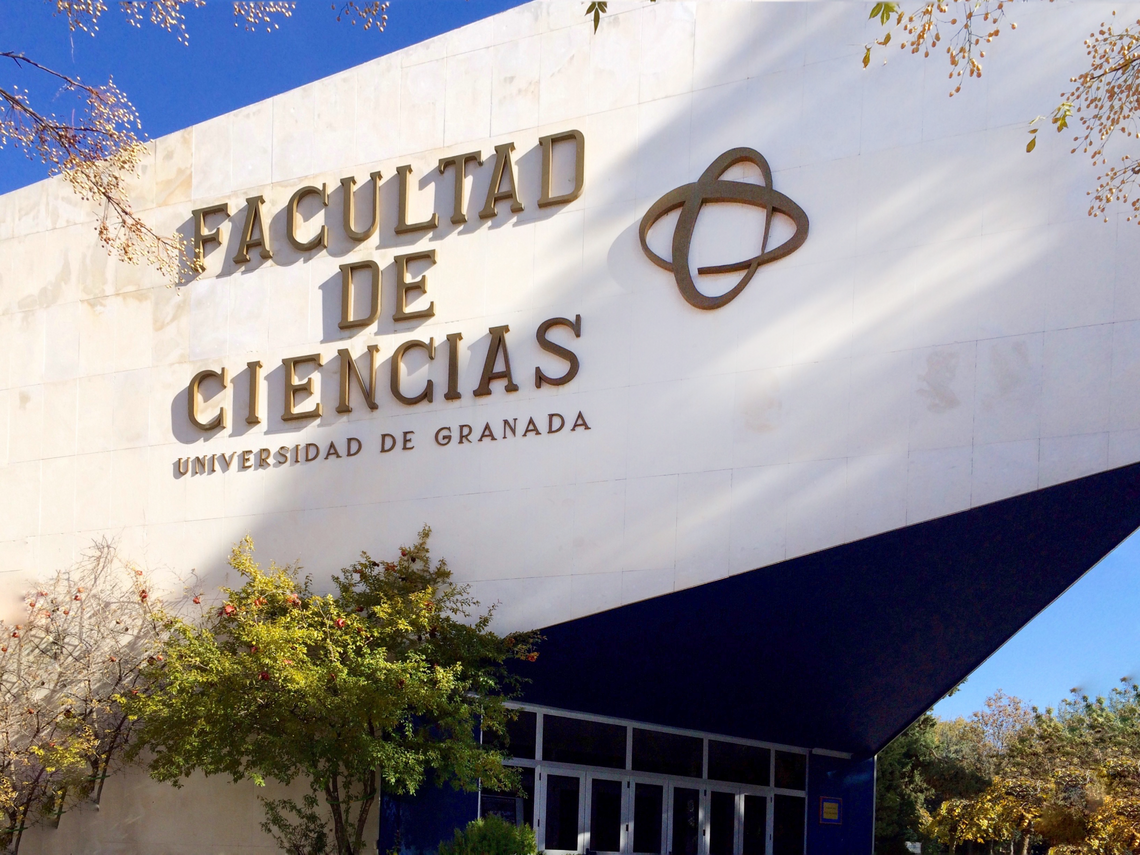Apply to a foreign university with confidence
- Properly fulfilled documents
- Perfect motivation letter
- Support from a personal mentor
- Offers from several universities
Everything about master's degree in Spain. How to apply for a master's degree in Spain? What are the most popular programs? How to get a grant or scholarship for a master's degree?
Free consultation





Master’s programs in Spain are known for their strong studies in the humanities, social sciences, and economics. Business management particularly stands out among them. Spain boasts three schools that are included in the list of the fifteen best MBAs in the world, according to the QS World University Ranking. For comparison, only one British university managed to make the list.
In this article, we will talk about the distinguishing features of Spanish master's programs, the academic process, prices, admission, and what to do after graduation.
The cost of a master's program in Spain depends on the region, type of university, specialty, and even the chosen discipline. In fact, the total price of the course is calculated from the number of ECTS credits. These are special units that are used to measure study and work hours. Typically, 60-120 ECTS credits are required to obtain a master's degree.
Items 1-6 of 408
Advanced search
Admission to master's programs is regulated by universities, therefore the requirements and procedure for submitting documents will depend on the specific university and faculty. Moreover, it is advisable that your previous education corresponds to the chosen master's program. For example, if you received a bachelor's degree in chemistry, then it is preferable to enroll in the same field. In practice, exceptions are possible for similar fields.
All deadlines for applications are also determined by the universities themselves — there is no general time frame. As a rule, for the autumn-winter semester, documents are accepted from January to late May-early June.
An application for admission is submitted on the website of the selected university. You can apply to several universities and to several fields of study at once. Applications are filled out in electronic form. In addition, you should attach scans of the required documents.
For admission to a Spanish university you will need:
If you submit copies of documents, they must be notarized.
Please be aware that the requirements differ depending on the institution and faculty. As an example, you need to pass the GRE or GMAT for MBA programs, and sometimes pass an interview. Always check for the exact list of documents on the official website of the university.
To study in Spain, you must provide a certificate confirming the level of proficiency in a foreign language.
In case of admission to a bilingual program, certificates must be provided for both languages.
Before submitting documents, you must also go through the procedure of legalizing your previous degree. This confirms that your previous education meets Spanish standards. If your country has signed the 1961 Hague Convention, then it is enough to affix an apostille to the diploma. This can be done at the Ministry of Education in the country where the document was issued. Otherwise, a more complex consular legalization process is required[9].
Spain actively attracts international students. For 2021, they accounted for 12.6% of the total number of students in the country[10] — not the highest rate for Europe. Therefore, universities are introducing more and more programs taught in English. Of course, this is not Germany, where there are more than a thousand of them offered, but there is a choice. There are a total of 322 programs in Spain taught entirely in English, and another 400 that are bilingual. In bilingual programs, half of the courses are in Spanish, while the other half are in English[11].
| QS Ranking in the World | QS Ranking in Spain | University | City | Programs |
|---|---|---|---|---|
| 168 | 1 | Universitat de Barcelona | Barcelona |
|
| 207 | 2 | Universidad Autónoma de Madrid | Madrid |
|
| 209 | 3 | Universitat Autònoma de Barcelona | Barcelona |
|

The most popular programs in Spain are architecture, service, hospitality and tourism, business and management, civil engineering, linguistics, and philosophy. In medical and natural science specialties, Spanish universities are inferior to other European ones.
| University | City | Program | Language of instruction | Cost per year |
|---|---|---|---|---|
| Universitat Politècnica de Catalunya — BarcelonaTech (UPC) | Barcelona | Architecture | Spanish or Catalan | 2,814 USD |
| University College of Hospitality Management and Culinary Arts | Sant Pol de Mar | Hospitality Management | English | 16850 EUR |
| University of Navarra | Pamplona | Teaching Spanish as a Foreign Language | Spanish | 14,803 USD |
| Universitat Pompeu Fabra | Barcelona | Political Philosophy | English | 6,496 USD |
Budget-friendly universities are located in the remote regions of Spain. Studies in Madrid and Barcelona are most expensive. There are several budget universities where the price is less than the national average.
| University | City | Region | Average cost per year |
|---|---|---|---|
| University of Granada | Granada | Andalusia | 928 USD |
| University of Santiago de Compostela | Santiago de Compostela | Galicia | 1,808 USD |
| University of Valencia | Valencia | Valencia | 2,712 USD |
| University of Rovira and Virgili | Tarragona | Catalonia | 3,277 USD |

MBA programs in Spain deserve a special mention. Of all the master's programs in the country, they are the most prestigious and take high positions in world rankings. In the 2021 QS World University Ranking, Spain's IE Business School moved up to 9th place, IESE Business School — to 11th, and Esade — to 13th[12]. Among the fifteen best MBA programs in the world, American and Spanish business schools have the most rankings (the ratio here is nine to three — after all, the USA is the birthplace of MBA programs).
The cost of an MBA is higher than that of other master's programs. In Spain, it is kept in the range of 28,250-33,900 USD/year — the average price in Europe. However, at universities as prestigious as IE Business School and IESE Business School, prices reach 79,099 USD. For admission to a business school, you must provide:
| QS Ranking | Business school | City | Length of study | Cost |
|---|---|---|---|---|
| 9 | IE Business School | Madrid | 11 months | 81,585 USD |
| 11 | IESE Business School | Barcelona | 19 months | 96,049 USD |
| 13 | Esade Business School | Barcelona | 15 months | 81,359 USD |
| 131 | EU Business School | Barcelona | 12 months | 20,170 USD |
| 141 | EADA Business School | Barcelona | 10 months | 44,070 USD |
More information about the Business Administration programs in Spain can be found on the Find MBA website.
Spanish master’s programs can be divided into two categories:
Both types are taught at public universities, but differ in several ways:
Therefore, when choosing a master's degree program in Spain, you should make sure that the qualifications you receive will be recognized abroad.

The duration of a master's program at Spanish universities depends on the direction of study. For the humanities, exact sciences, and engineering, a master's degree is usually calculated for 60 European credits and lasts one academic year. But at the faculties of psychology, medicine, and biology, studies continue for one and a half to two years, and you need to gain from 90 to 120 ECTS.
Master's programs consist of modules (asignatures), which are divided into three groups:
Master's level studies at Spanish universities include lectures, seminars, and a research project led by a mentor. For some forms of study, there are no strict requirements for attendance. However, we strongly recommend not to miss classes so as not to fail the semester exam. Lectures last 50-60 minutes. In general, 4-5 lectures are held per week at the master’s level.
Student performance is assessed during final exams in June. Exams can be retaken in September. To obtain a master's degree, you must also write and defend a final thesis — tesis de titulación.

Master's students can receive state or university scholarships, along with grants from the European Union. There are two main scholarships from the Spanish Ministry of Education, Culture and Sports to look out for:
Details can be found on the official website of the Ministry of Education, but all of the information is in Spanish. There is little information about government scholarships in English.
There are slightly more chances to find out about financial aid on the official websites of the universities. For example, the Autonomous University of Madrid offers its students a variety of scholarships up to 1,130 USD[16]. The same is at the University of Barcelona[17]. Be attentive and always read the terms of participation in the competition. Often, only Spanish citizens or students with at least one relative of Spanish citizenship can apply for a scholarship.
Another way to sponsor your studies is through the Erasmus Mundus Scholarships. The payment amount depends on the level and length of study, along with the nationality of the student. In general, the Erasmus Scholarship covers travel costs, part or all of the course cost, and monthly living expenses. To receive such aid, you must enroll in one of the Erasmus Mundus Joint Master Degree (EMJMD) programs. EMJMD is the result of a partnership between universities in different European countries. During the entire period of study (one and a half to two years), the student changes countries and universities several times. For example, in the Erasmus Mundus Human Rights Policy and Practice program, the first semester is held in Sweden, the second in Spain, and the third in the UK[18]. Students receive a monthly stipend of 1,130 USD and full tuition coverage.
More information on this topic can be found on the website of the European Commission. There are more than 70 included programs, part of which take place in Spain.

To supplement your budget, you can try to find a side job. Unfortunately, it will not be possible to get a full-time job. A student visa allows you to work no more than 20 hours a week (4 hours a day). A full-time work schedule is only allowed during the summer holidays. Of course, it is also important that your job does not interfere with your studies or affect your academic performance.
It is a little more difficult for students from non-European countries to find a job. Even for a part-time job, you must obtain an official permit — the AUT05a form[19]. Moreover, only your employer can request it. That is, you first need to find a person or a company that will agree to take you on an incomplete schedule. And, unfortunately, there are not many of them. Therefore, foreign students are more likely to get jobs that do not require special knowledge: waiters, babysitters, couriers, bartenders, or hotel assistants.
The minimum wage in Spain is 1,271 USD per month[20]. For part-time work, you can receive up to 565 USD/month.
A master's degree does not guarantee successful employment. There are numerous reasons for this: immigration, the real estate crisis, shadow markets, and other economic indicators. Finding a job in Spain can be difficult not only for foreigners, but also for locals. In 2021, the unemployed made up 14% of the total working-age population — an extremely high rate for a developed European country. For comparison: the unemployment rate in Germany is 3.6%, in Italy — 9.3%, and even in neighboring Portugal — only 6.4%[21]. The highest unemployment rates are among young people — 33%. However, considering that the rate once reached 50%, this is considered not so bad[22].
On the other hand, statistical indicators are not that important for a particular graduate. A student with a quality education, excellent knowledge of Spanish, recommendations from professors, and professional skills will be able to find a job in the country. To "prepare the ground", it is advisable to undergo internships while studying. This way, you will have a chance to find employment immediately after graduation.
After graduation, you have the opportunity to apply for a job search visa (estancia por estudios superiores que cesa, para búsqueda de empleo). It is valid for 12 months and cannot be extended[23]. If you manage to find a job within the specified period, you will receive a resident card and can stay in Spain. In 2021, there was a high demand for IT specialists of various fields (data analytics, artificial intelligence, software engineering), people employed in the field of electronic commerce (e-commerce), workers in the service and tourism sector, as well as "eternal" professions: doctors , teachers, and others[24].
Another path after graduation from a master's program is to obtain a doctorate degree. In Spain, doctoral studies last 3 years and take place in special colleges at universities or research institutes. The good news is that there are more scholarship and grant programs available for doctoral students. Moreover, the amount of financial assistance is several times higher than the amount offered for master’s and bachelor’s programs. For example, Pompeu Fabra offers grants up to 6,780 USD.
However, building an academic career in Spain is not much easier than finding a job in your field. This is time-consuming and requires complex bureaucratic procedures. Ultimately, there are no more than 3-6% of foreign teachers in the country[25].

60+ countries
we work with
$1,000,000 saved
by students through scholarships
6,400 offers
our students got